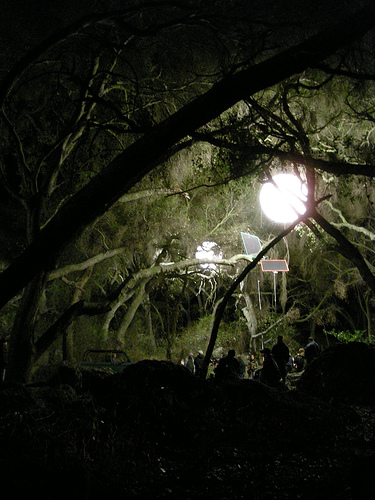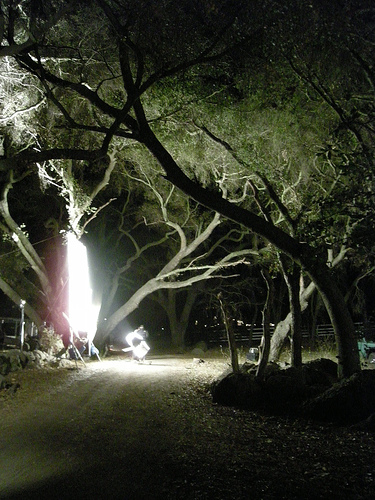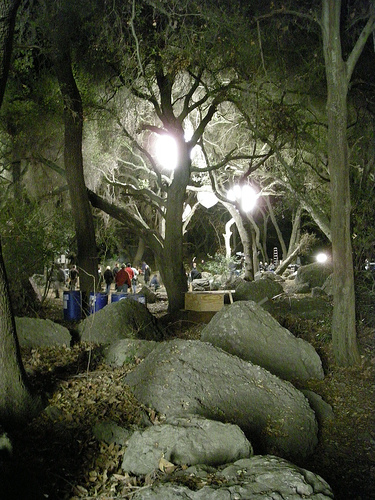I don't have the money yet, but I'm looking to hopefully be getting close in the coming months (hopefully not too many months) and I was wondering if y'all could possibly give me a run down on the pros and con and abilities of 2/3" chip cameras I know about the panasonic varicam, the red one (and the future epic which you can upgrade to from the red one), and I know there are others, but I don't have my lil list infront of me.
here is what i'm wanting to do...i know that lighting is a big part of making your film lok great, but i'm looking at the fact that there will be times I will be needing the ability of shooting in a lowlight situation...while some small amont of liting may be possible or needed, i'd like to be able to shoot outside at night and it look like regular/natural outdoor night lighting (perferably as those the actors are lit by the moon, etc), I'll also have a few indoor night shots with low light situations
i'll also be needing some crane shots, on car mounted shots, i'll be intending on shooting widescreen at 24p with plans that it will eventually be transfered to 35mm and what that transfer to be as easy and good as possible
i know that these are highend cameras with highend prices, but I would really like your input so that I have other facts, thoughts, feelings, and info, etc...to add to what I have now.
thanks!
here is what i'm wanting to do...i know that lighting is a big part of making your film lok great, but i'm looking at the fact that there will be times I will be needing the ability of shooting in a lowlight situation...while some small amont of liting may be possible or needed, i'd like to be able to shoot outside at night and it look like regular/natural outdoor night lighting (perferably as those the actors are lit by the moon, etc), I'll also have a few indoor night shots with low light situations
i'll also be needing some crane shots, on car mounted shots, i'll be intending on shooting widescreen at 24p with plans that it will eventually be transfered to 35mm and what that transfer to be as easy and good as possible
i know that these are highend cameras with highend prices, but I would really like your input so that I have other facts, thoughts, feelings, and info, etc...to add to what I have now.
thanks!





 I'm not buying any camera right this second, but i'm intending to do that soon. I wasn't really looking to go as far as the varicam, but the red seems so appealing and I figure with there not being rental places closeby but there being other filmmakers in the area I might be able to make some of the money back while in post on my film by renting locally, but I may go with one of your suggestions due to cost. I intend on doing this right but if I can do that with one of the HD cameras you mentioned that would ultimately give me more money I can use in other areas...could you please give me a little bit of a run down on your personal experiences whith the HD cameras you tried and what was ultimately the factors that drew you to purchase the JVC HD110?
I'm not buying any camera right this second, but i'm intending to do that soon. I wasn't really looking to go as far as the varicam, but the red seems so appealing and I figure with there not being rental places closeby but there being other filmmakers in the area I might be able to make some of the money back while in post on my film by renting locally, but I may go with one of your suggestions due to cost. I intend on doing this right but if I can do that with one of the HD cameras you mentioned that would ultimately give me more money I can use in other areas...could you please give me a little bit of a run down on your personal experiences whith the HD cameras you tried and what was ultimately the factors that drew you to purchase the JVC HD110?